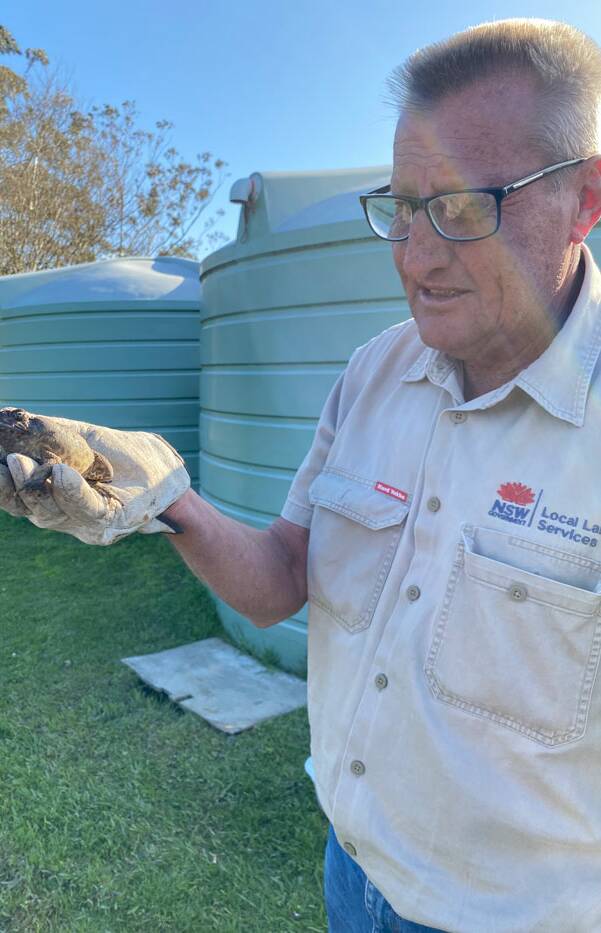
A TOTAL of 19 cane toads have been caught around Lake Macquarie in the last week, raising concerns about the risk to native species.
On Monday, September 19, a report was made to the NSW government about a number of cane toads at a property in Mandalong.
The following day a government and University of Newcastle team caught 17 toads on the property, which a Department of Primary Industries (DPI) spokesperson said were taken to the university and "assessed for age, sex and reproductive status before being euthanised".
The spokesperson said yesterday that two more toads had been caught by the DPI but that there had been "no further reports of cane toads in the area".
"Investigations into how the cane toads arrived in the area are still ongoing," the spokesperson said. "Cane toads are toxic at all life stages, which is a threat to native animals and pets that may attack or eat toads."
Minister for Agriculture Dugald Saunders said the community has a critical role to play in stopping the toads' spread and that "now is not the time for complacency".
"Cane toads pose a significant risk to our domestic and native fauna and it is critical we keep them out of NSW," Mr Saunders said. "Community members must be diligent in keeping an eye out for and reporting any rogue toads, because the size of this colony indicates there could be many more in the area."
The DPI considers cane toads a "non-native invasive pest in NSW".
"The species has the ability to cause devastating impacts on our communities, native wildlife and ecosystems due to their ability to spread to new areas, use limited natural resources and to poison animals that try to eat them," the DPI website says.
Cane toads may be "grey, yellowish, olive-brown or reddish-brown", with average-sized adults 10-15 cm long. Due to the chance of misidentification with native species, the DPI are advising the community not to harm animals they think may be cane toads.
"If you think you have seen a cane toad, use the online biosecurity concern form, call your local council or the NSW DPI Biosecurity Helpline 1800 680 244, or use the free ToadScan app," the spokesperson said.
WHAT DO YOU THINK? We've made it a whole lot easier for you to have your say. Our new comment platform requires only one log-in to access articles and to join the discussion on the Newcastle Herald website. Find out how to register so you can enjoy civil, friendly and engaging discussions. Sign up for a subscription here.


.png?w=600)




